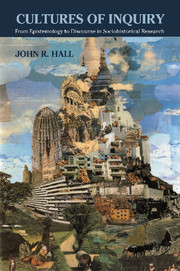1 - Introduction: the Third Path
Published online by Cambridge University Press: 22 September 2009
Summary
Across the social sciences, history, and the humanities, approaches to research often seem disparate. On one front, sociologists Edgar Kiser and Michael Hechter seek to defend the project of general social theory in comparative and historical sociology. Arguing that idiographic approaches and recent trends toward induction play into charges of superficiality, Kiser and Hechter promote the search for causal mechanisms through the deductive use of general theory. From a different direction, in The Return of Martin Guerre, historian Natalie Zemon Davis has reexamined old accounts about a village in the south of France, where one day in 1556 there appeared a man who said he was the husband of a woman named Bertrande. Martin Guerre had disappeared years earlier, leaving behind his wife of nine years and a newborn child. The man recounted the reason for his disappearance – he had gone off to war – and the village people welcomed his return. Bertrande took him into her arms. But eventually the Martin Guerre who shared a bed with Bertrande lost favor, and came to be confronted in court with the return of the real Martin Guerre. Did Bertrande know from the beginning that she was accepting an impostor for her husband? Davis weaves a story of complex truths submerged in contending agendas of disguise. In the bargain, she reminds us that secrets and lies make social “reality” a many-layered thing.
As these two examples suggest, it is possible to produce radically different kinds of sociohistorical knowledge.
- Type
- Chapter
- Information
- Cultures of InquiryFrom Epistemology to Discourse in Sociohistorical Research, pp. 6 - 30Publisher: Cambridge University PressPrint publication year: 1999



